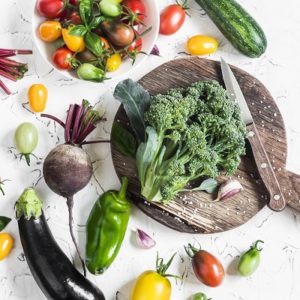 Raw food diets are becoming increasingly popular. The theory behind raw is that it is healthier than cooked food. But is this actually the case?
Raw food diets are becoming increasingly popular. The theory behind raw is that it is healthier than cooked food. But is this actually the case?
The Raw Diet Defined
There are 2 definitions of raw diet. The first is fully raw, in which no foods are cooked in any manner.
The second is lightly cooked raw, that is, with no foods heated above 115° F. In general, raw diets usually mean no heating at all, so no baking, steaming or microwaving.
This means that a lot foods most of us take for granted are off the menu, such as bread, potatoes, most grains, and so on.
.
Raw vs. Vegetarian Raw & Vegan Raw
Raw dieters will actually eat raw meat, poultry, dairy and fish. Raw vegetarians will not eat any living animal but they will eat dairy and eggs. Vegan raw dieters will not eat any animal flesh or products from animals, so that means no dairy, eggs, honey and so on. This is the strictest form of raw.
The Pros and Cons
Pros
The theory is that you will get more nutrients. They won’t be leached away by overcooking. Eating foods in their natural state means nothing artificial. Buying organic and/or from farmer’s markets and small farms, and washing all produce well with soap, water, and a vegetable brush, and peeling them, can also mean far fewer harmful chemicals in the diet, such as pesticides.
The theory is that eating like a cavemen or our hunter-gatherer ancestors is more in tune with our biological makeup and that raw can therefore be nutritionally complete, especially if someone is an omnivore (eats everything) rather than a vegetarian or vegan.
Cons
Raw diets can be dangerous for a number of reason. If you don’t eat eggs or dairy, you are at much greater risk for nutritional deficiencies in terms of protein, amino acids, and vitamin B12.
Heating foods might perhaps alter food to some extent, but studies have also shown that a long term raw diet lacks key nutrients, including cancer-fighting and heart healthy lycopene. Cooking foods that contain lycopene, such as tomatoes, made them more nutritious and the antioxidants more bioavailable so they could be sued by the body.
Similarly, steaming or boiling asparagus, cabbage, carrots, mushrooms, peppers, and spinach, among other vegetables, supplies more antioxidants to the body than raw. One-pot meals such as soups and stews ensure that no nutrients will get thrown away with the boiled water.
Finally, raw eggs, milk, meat and fish are carries of various foodborne illnesses and parasites, some of which can be deadly.
The bottom line: opt for the middle way. Adopt healthier cooking methods like steaming, and eat both cooked and raw foods when it makes good health sense.






